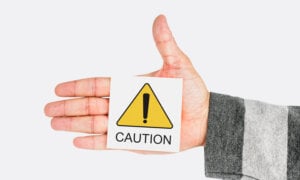

Call me old-fashioned, but I like to give ETFs to my loved ones at Christmas. Nothing captures the spirit of the holidays quite like a low-cost, passively managed investment project. But before you go shopping for the Couch Potatoes on your wish list, be aware that December can be a terrible time to buy ETFs.
No, it’s not because of all the last-minute shoppers pushing and shoving at the discount brokerage. The reason is that any capital gains that the funds have incurred over the last 12 months are distributed at the end of the year. Although they’re called “distributions,” capital gains are not handed out in cash like dividends or interest. You don’t receive any new shares, and the market price of the ETF won’t change. All you get is a T3 slip showing the amount of the gain, which you’ll need to report on your 2010 tax return. Imagine the look on your child’s face when she opens your thoughtfully wrapped ETF, only to find that it comes with a nasty tax bill. Talk about a lump of coal.
Their gain, your pain
In general, ETFs are extremely tax-efficient, especially if they track broad, cap-weighted indexes. Funds incur capital gains when they sell securities at a profit, and passively managed funds don’t do a lot of selling. (The ETF structure may allow fund managers to avoid taxable gains even when they do sell stocks.) However, a fund may have no choice but to realize capital gains when its benchmark index is changed, forcing the manager to sell some securities and replace them with others. The funds are then required to pass those capital gains on to their investors, usually at the end of the year. (Of course, this is not an issue if you’re investing in an RRSP or a TFSA.)
If you’re a buy-and-hold investor, capital gains are just part of the deal: take comfort in the fact that your fund made some profits during the year and put money in your pocket. However, if you’re thinking about buying into an ETF for the first time, December may not be the time to do it. If you buy shares of the fund now and it pays out a large capital gains distribution at the end of this month, you’ll wind up paying tax on other people’s gains.
When ETFs declare that they will be distributing a capital gain for the year, they name a date of record and an ex-dividend date. (These terms will be familiar to investors who buy individual stocks. This article offers a more complete explanation.) If you buy an ETF before the ex-dividend date and still hold it on the date of record, you’ll pay tax on all of the capital gains accumulated during the year, even though you may have only owned the fund for a week.
Claymore, iShares and BMO all have the same capital gains distribution schedule for 2010:
|
Declaration date: |
December 17 |
|
Ex-dividend date: |
December 24 |
|
Date of record: |
December 30 |
|
|
|
What does this mean for investors looking to buy an ETF in a taxable account now, perhaps as a gift for that special someone? It means that you should consider waiting until December 17 to see if that fund is going to distribute a capital gain. If it is, you should delay your purchase until after December 24. Any shares you purchase after that date will not be hit with the tax.
Big gains in 2010
Although the official declarations won’t be made until December 17, most ETF providers have already made estimates. It looks like 2010 was a particularly bad year for capital gains distributions. Here are the links to each company’s press releases, plus a few highlights that stood out:
Claymore
iShares
BMO
Vanguard












